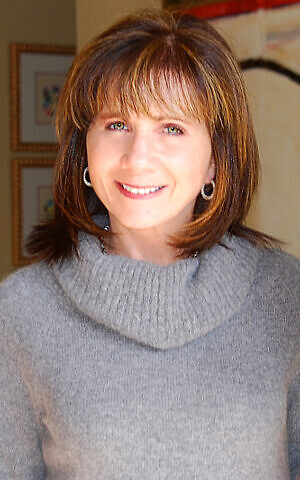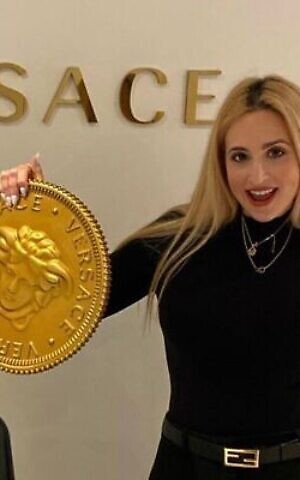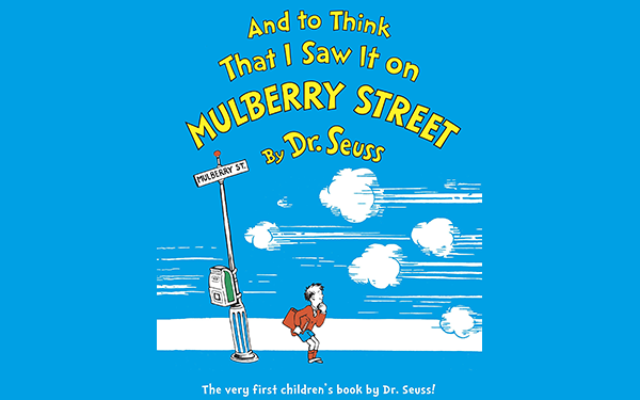Dr. Seuss Books Provide Teachable Moments
Disparate sides balance the controversial values that child author Theodor Geisel put forward decades ago alongside the joy he provided.
After 37 years with the Atlanta Journal-Constitution and now with the AJT, , Jaffe’s focus is lifestyle, art, dining, fashion, and community events with emphasis on Jewish movers and shakers.
Dr. Seuss Enterprises announced earlier this month that it will cease publication of six children’s books that include “hurtful” portrayals of cultural stereotypes. The announcement came on what would have been Theodor Seuss Geisel’s 117th birthday March 2.
Geisel, who is of German descent and childless, has been adored by generations worldwide for positive values in many of his works. Much like politics today, there are disparate sides: going overboard with left wing “cancel culture” versus aligning with the current reexamination of racial stereotypes. Examples of the latter include an Asian depicted wearing a conical hat holding chopsticks while eating from a bowl. Blacks were shown in cages as apes.
The AJT asked Atlanta Jewish professionals and parents to weigh in on the controversy.

Laurence Rosenthal, senior rabbi of Congregation Ahavath Achim and father of four, gave his take. “I’m glad that the [Dr.] Seuss Foundation came to the decision to make moves that honor the communities they serve, keeping an eye on the psychological and social impact that the books could have on their readers.
“For me and my family, we welcome their revisions and decision to not make available those depictions any longer. The most impactful part of Dr. Seuss books wasn’t their antiquated and culturally insensitive depictions of other cultures, but rather their incredible imagery, fun and ridiculous tongue-twisting narratives and engaging storylines which often dealt with very important justice and social issues: environmental, kindness, including people who are different. The Seuss Foundation is modeling the way to be good citizens in our new world.”
Early in his career Geisel was referred to as a “sanitized Hitler” as some of his political cartoons depicted Jews very negatively. PJ Grisar’s piece in The Forward March 2 sums up the current debate: “Yes, Dr. Seuss Wrote Racist Books. He Still Has Things to Teach Us.” Grisar wrote that Seuss “was not always so subtle or, it turns out, morally lucid.”
In his later work, “The Sneetches and Other Stories,” the “Star-Bellied Sneetches” showed Geisel’s disdain for anti-Semitism, according to Grisar. And “Yertle the Turtle” criticized Hitler, scripted as, “Wolf chewed up the children, spit out their bones. But those were Foreign Children and it really didn’t matter.”

Atlanta educator Lori Simon spent 22 years instructing grades four to six and helping remediate students as an early intervention teacher, which included a diverse group from different backgrounds, races and religions. Simon taught her students “no matter their background, to believe that they are a vital part of society and can achieve whatever they imagine for themselves in life.”
Her perspective on the Dr. Seuss controversy is: “Any book that illustrates racist images in any form runs counter to core educational beliefs and should be removed. I view this as a valuable lesson to our students that we are never too old to learn, review and change.”
Susan Shapiro McCarthy is a licensed professional counselor with decades of experience in the public school system and now a private setting. “I utilize the concepts illustrated in cognitive behavior therapy, which outlines that our thoughts lead to our feelings, which lead to our behavior.

“Underlying the thoughts are core beliefs which we develop from the time we are very young and throughout our lives through experiences and exposure to ideas. With that said, seeing negative stereotypes of groups can lead to core beliefs that are not fact-based, but [based] on our perceptions. Utilizing books for educational purposes that promote these stereotypes can be the beginning of developing long-term core beliefs resulting in prejudicial thoughts.”
From a grandparent’s perspective, Dr. Mitch Lippman shared, “This is another example of perceptions going overboard. Banning Seuss books is just as silly as his wonderful stories. Our children loved his illustrated books and grew up without a hint of stereotyping. Alas, I feel sorry for the kids that won’t be able to enjoy his fables. Even if it’s just a few books in question, the ban casts a spell over all of his works and will keep them from some children.”

Epstein School parent Liz Korn-Botton offered her perspective. “Instead of perpetuating cancel-culture by removing older iconic books with imperfections, I’d like to see a shift where the Seuss estate modernizes them. We, as a society, have progressed from the space where Seuss reflected the values and energy of his time. We can simply update the words and imagery to be more progressive and modern. This is a teachable moment for the world to see.”
Meanwhile Seuss books are flying off shelves and ecommerce sites. On March 2, Fox Business reported that some books are selling for five figures. To that, grandmother Iris Wynne countered, “So much for cancel culture! Amazon sold out of Dr. Seuss and I got the last two books at Target.”




comments